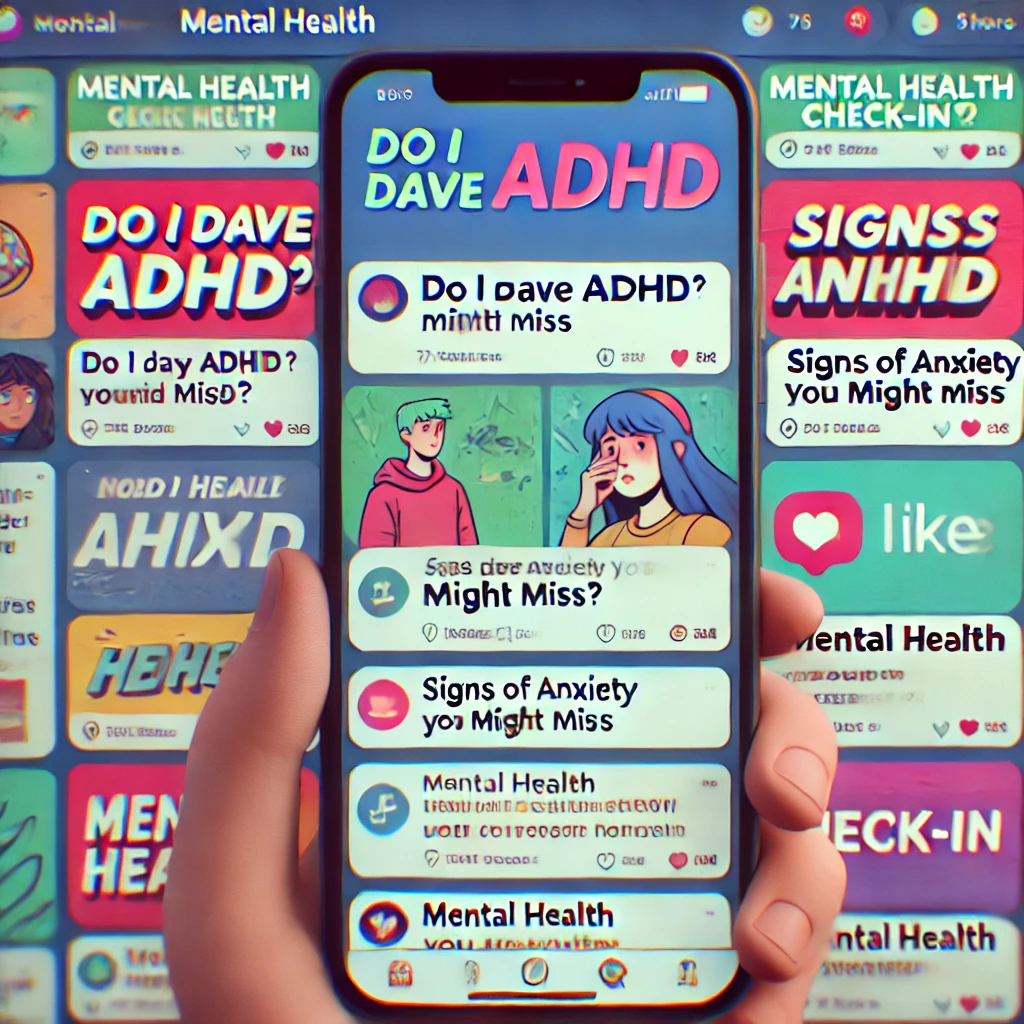The Rise of Mental Health Self-Diagnoses on TikTok: Helpful or Harmful?
Social media has revolutionized how we talk about mental health. Platforms like TikTok, Instagram, and Reddit have made psychological concepts more accessible than ever. With just a few scrolls, users can find bite-sized videos explaining everything from ADHD symptoms to dissociative identity disorder (DID). But with this increased awareness comes a growing trend: self-diagnosing mental health conditions based on short, often oversimplified content.

Is this trend helping people understand themselves better, or is it leading to misinformation and misdiagnoses?
Why Are People Turning to Social Media for Self-Diagnosis?
- Mental Health Awareness is Growing – Many people resonate with symptoms described online and seek explanations for their struggles.
- Barriers to Professional Diagnosis – Therapy is expensive, and waitlists for mental health professionals can be extended. Social media provides immediate, free information.
- Relatability & Community – Seeing influencers or peers share their experiences can feel validating, especially for those who’ve felt misunderstood.

The Risks of Social Media Self-Diagnoses
1. Oversimplification of Complex Disorders
Mental health conditions are nuanced. A 60-second video cannot capture the full diagnostic criteria, context, and differential diagnoses professionals consider. For example, traits like impulsivity or forgetfulness might suggest ADHD—but they could also stem from anxiety, depression, or even lifestyle habits.
2. Confirmation Bias & Misinformation
Algorithms prioritize engagement, meaning the more you interact with certain content, the more you see it. This can create an echo chamber where users reinforce their beliefs without critical evaluation. Some influencers, despite good intentions, spread incorrect or exaggerated information.
3. The Danger of Mislabeling & Over-Identification
Labeling oneself with a disorder based on social media content can lead to self-fulfilling prophecies or unnecessary distress. Some individuals may even alter their behaviors to fit a diagnosis they believe they have.
4. Delayed or Avoided Professional Help
If someone believes they have a condition based on TikTok, they might skip seeking a professional assessment, potentially delaying proper treatment or receiving inappropriate interventions.

How Can Mental Health Professionals Respond?
- Engage in Digital Spaces – More psychologists join platforms like TikTok to provide accurate, nuanced information and counteract misinformation.
- Encourage Critical Thinking – Teaching the public how to differentiate credible sources from anecdotal stories can improve digital mental health literacy.
- Validate While Guiding – Instead of dismissing self-diagnoses outright, clinicians can acknowledge people’s concerns while encouraging professional evaluation.

Final Thoughts
Social media has undeniably increased mental health awareness, but self-diagnosing based on short-form content can be misleading and even harmful. While it’s great that people recognize their struggles, a professional assessment remains the best way to ensure accurate diagnosis and effective treatment.
If you’re experiencing mental health concerns, use online resources as a starting point—not the final word. A qualified professional can provide clarity, support, and the tools to navigate your mental health journey.



